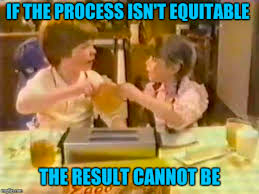
Bob Geary, a founding member of Livable Raleigh, former member of Raleigh’s Planning Commission and a former Indyweek columnist, wrote to his old newspaper about the Raleigh elections and the issues of growth, density, equity and affordable housing. His letter was in response to an Indyweek article that ran last week.
The newspaper version is edited slightly from the original, with personal notes to his old colleagues removed.
Here’s what it said:
I was struck by this summary description of the Raleigh candidates in the piece on the Wake Habitat questions:
“Most of the city council candidates are divided into two camps—those who support upzoning to allow developers to build denser housing and those who oppose the city’s pro-growth strategies, arguing council members should do more to protect existing single-family neighborhoods.”
It stuck in my mind because it’s sort-of true as far as it goes but is finally inaccurate, I think, in that it leaves the impression – intended or not – that candidates in the first camp are pro-growth and those in the second are anti-growth.
Better to say that the first camp favors letting the market work without regulation, arguing that it will serve rich and poor alike – but knowing that it won’t – while the second camp favors using the powers of city zoning to assure that growth occurs and serves the interests of all.
I am supporting the second group of candidates, and speaking only for myself, I am unabashedly pro-growth, and in fact believe that the policies I favor would produce more growth, not less, in the long run, and the same amount, but distributed differently, over the near term.
The big advantage of these policies over the current Council’s? Equity.
Their “pro-growth strategies” are systematically pushing low-income residents out of Raleigh, while allowing developers and builders to serve only the affluent. (Which, of course, provides them the greatest profits.)
So yes, I do oppose their “pro-growth strategies.” I do believe the existing stock of small, affordable homes and duplexes and older apartment buildings in existing neighborhoods (not just single-family neighborhoods) should be given some measure of protection from the scrape-off scourge currently occurring.
The candidates I support hold this same view, as I understand them, though again I speak only for myself.
I support:
1) In the biggest development projects, affordable housing units MUST be included.
As you know, state law is said by the development industry to prohibit “requiring” this. But the whole process of conditional zoning that prevails in North Carolina ABSOLUTELY allows cities to reject upzoning proposals that do not fulfill critical community needs.
Affordable housing is such a need.
The current mayor and Council majority insist there’s nothing they can do to influence the mix of incomes in a high-rise project. The truth is, there’s nothing they WANT to do except rubber-stamp developers’ plans, then insist that approving more luxury apartment projects will somehow benefit lower-income people by the mysterious magic of “filtration.”
Formerly known as trickle-down.
The upshot of their “pro-growth strategies” is that the enormous profits that accrue when land is upzoned for a 20-, 30- or 40-story building ALL go to the developers and their bankers and investment funds. Hundreds of millions of dollars in profits, and ultimately billions of dollars, that could have been more widely shared within the city are instead hoarded by a few, including many investors who live somewhere else.
This could be why, as fast as Raleigh is growing, our local tax rates are not falling, but instead are on the rise. (Wait, do I sound like Bernie Sanders?)
2) The same policy of inclusion that I advocate for the biggest projects should also have been applied to the so-called “missing middle” text changes.
MM was sold as a way of allowing more affordable homes in every neighborhood. But in practice, because no guardrails were put in the texts (or exist anywhere else in the UDO), “missing middle” is a free pass to build multiple large, expensive houses or townhouses where previously only a single house -often a modest, older house – was sited.
To be clear, I support “missing middle” policies intended to produce additional smaller, affordable homes and apartment units in neighborhoods.
That’s not what we got.
It’s ironic that the actual outcome is overshadowed by the headline case in affluent Hayes Barton. But even there, tearing down a large old house should’ve made way for at least a few relatively affordable units in the replacement project. But since there’s no such requirement or even incentive to be inclusive in our “missing middle” scheme, the developer is going for maximum profit.
(I would add parenthetically that when some of us pointed out what was MISSING in “missing middle” we were ignored and the policies were adopted with virtually no public discussion or debate. The kind of vetting that occurred in CAC meetings, always despised by our mayor, didn’t happen. Not her thing, obviously.)
3) I support density – high-rise, inclusive density – downtown and along major corridors served by bus transit today or with clear plans for future bus transit.
Almost every old shopping center on every highway in Raleigh can be turned into a future high-rise, mixed-use, inclusive and transit-served development.
Current Council policies, however, spread high-rise density thinly across Raleigh instead of concentrating it on current or future transit corridors. I call this Sprawl 2.0, because it not only does NOT encourage transit ridership, it undermines any hopes of converting Raleigh from car dependence to a transit-supported future.
This is why I said at the outset that our smarter-growth policies would allow for MORE future growth than their libertarian “let the market govern” policies.
Traffic congestion is still manageable in Raleigh, but not for long. What happens when the two or three cars that go with every Sprawl 1.0 house are supplanted by 200 additional cars attached to a 100-unit apartment building (to pull figures out of the air) permitted in a place where no transit is planned?
Raleigh’s current leadership is pretending to be pro-transit, but their policies – those “pro-growth policies” to which I object – are adding geometrically to our car dependence.
Where high-rise projects are served by transit, equity interests are also served.
Luxury high-rise apartments attached to giant parking decks for hundreds of cars? Not so much.
If you appreciate the kind of reporting we bring to you
|
Please donate $10 or $20, Thanks for supporting |
 |

